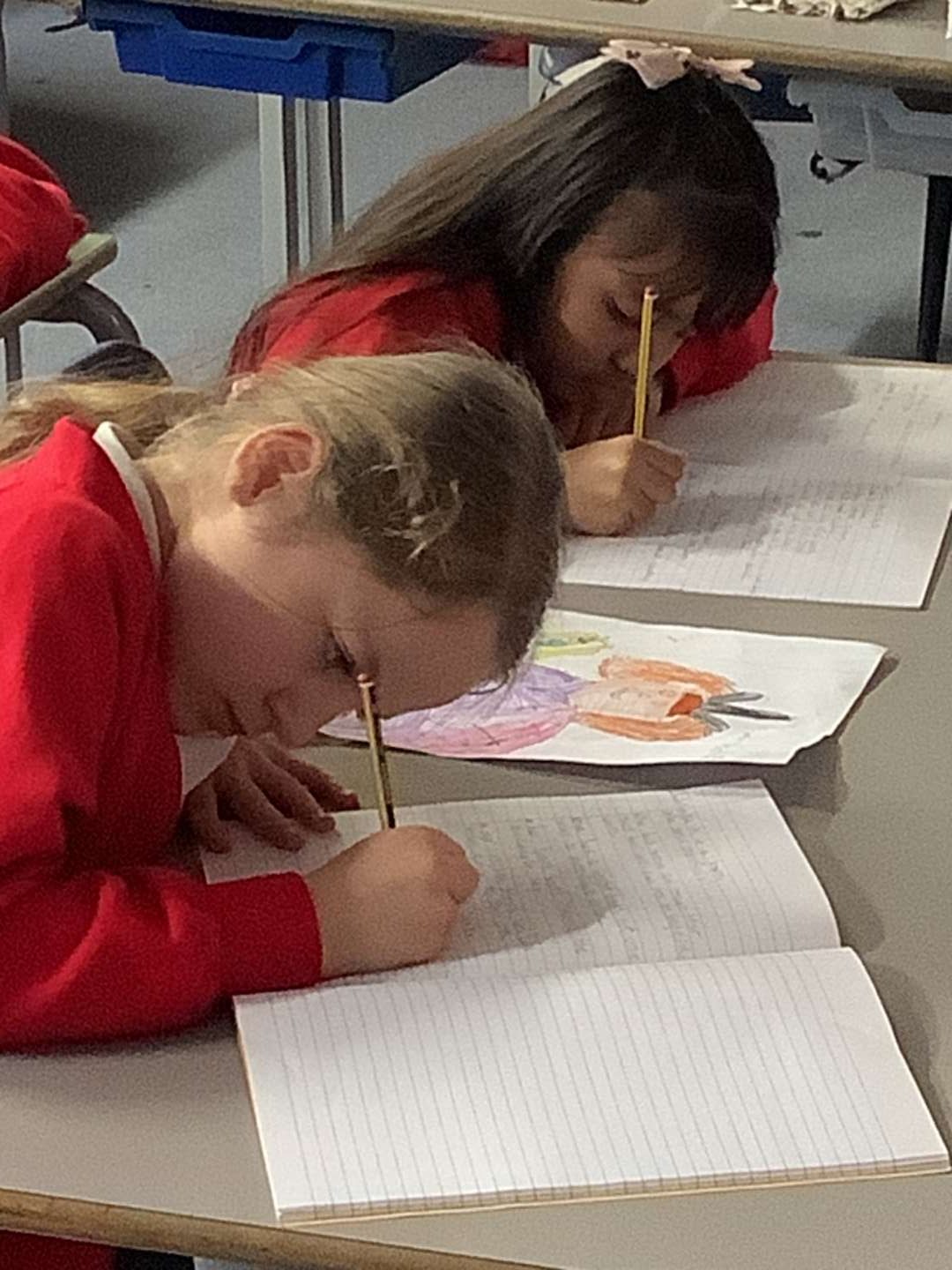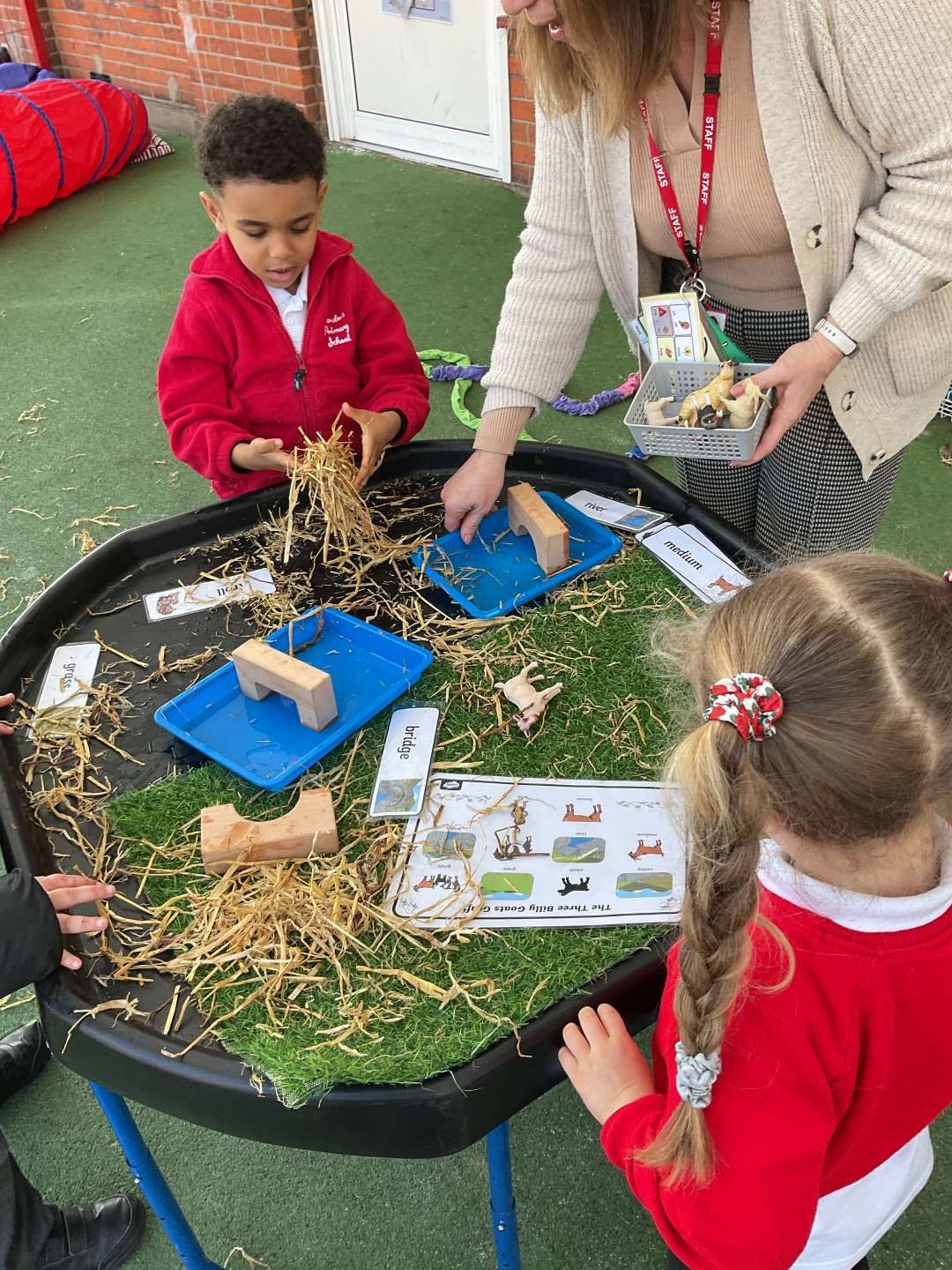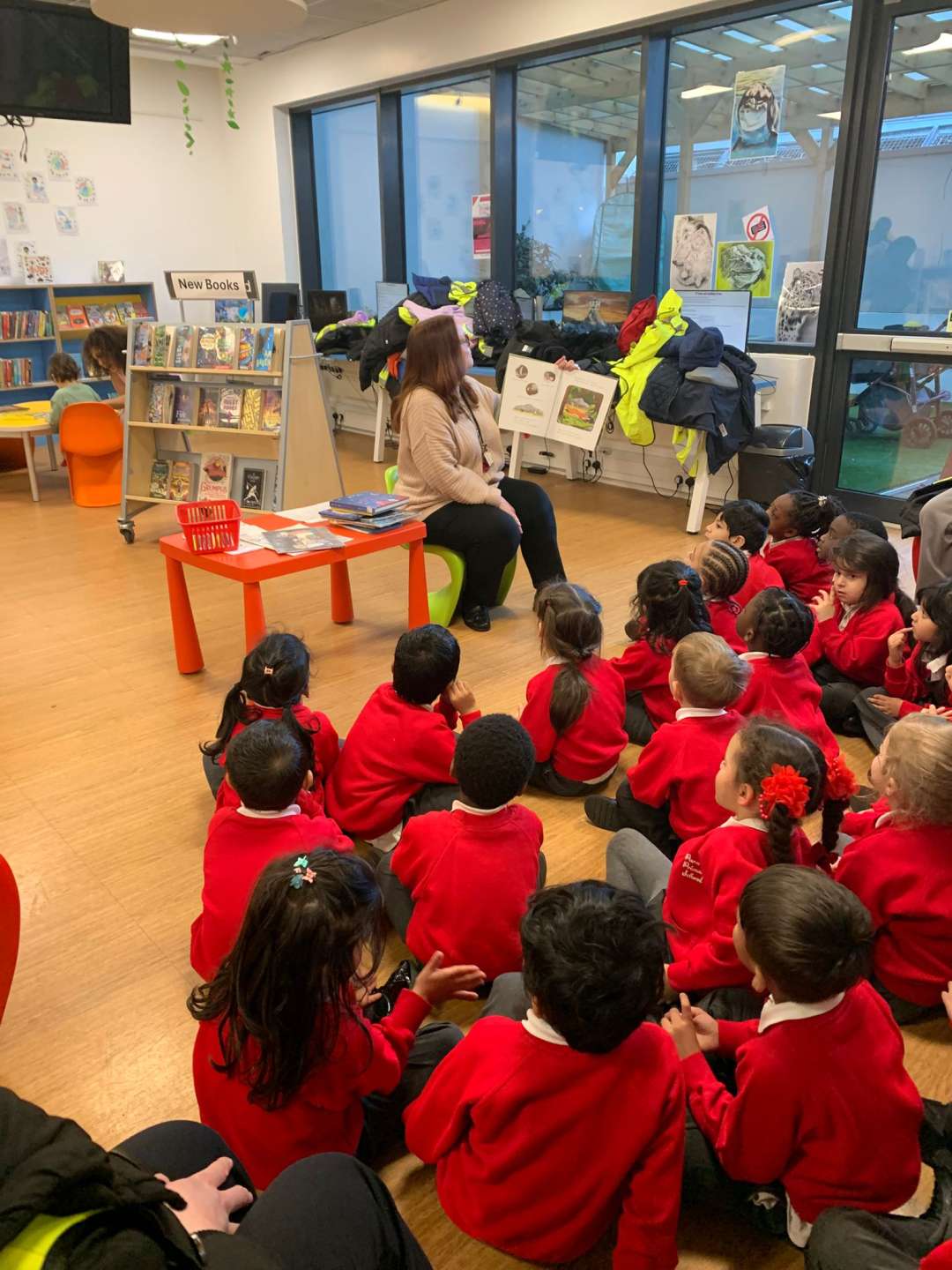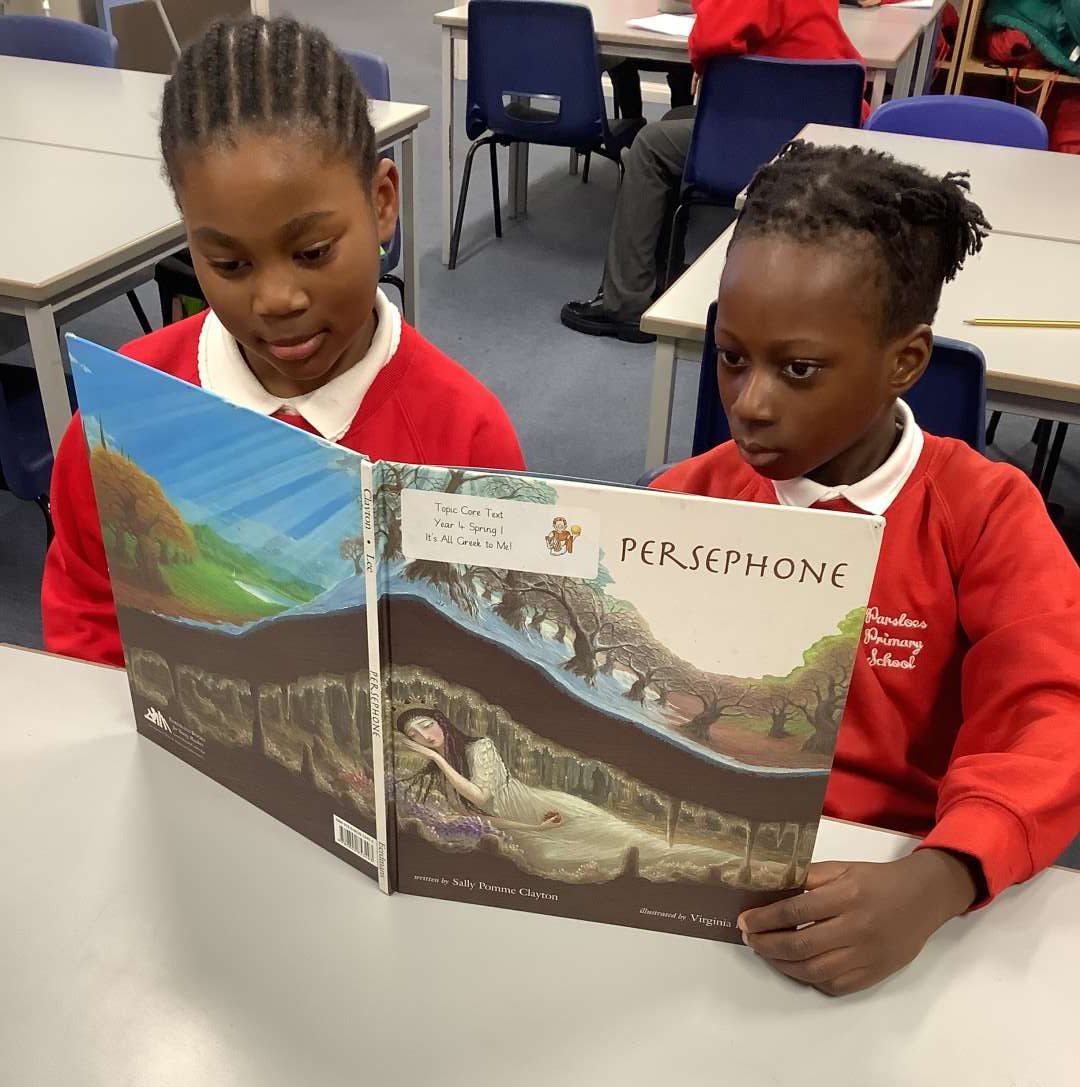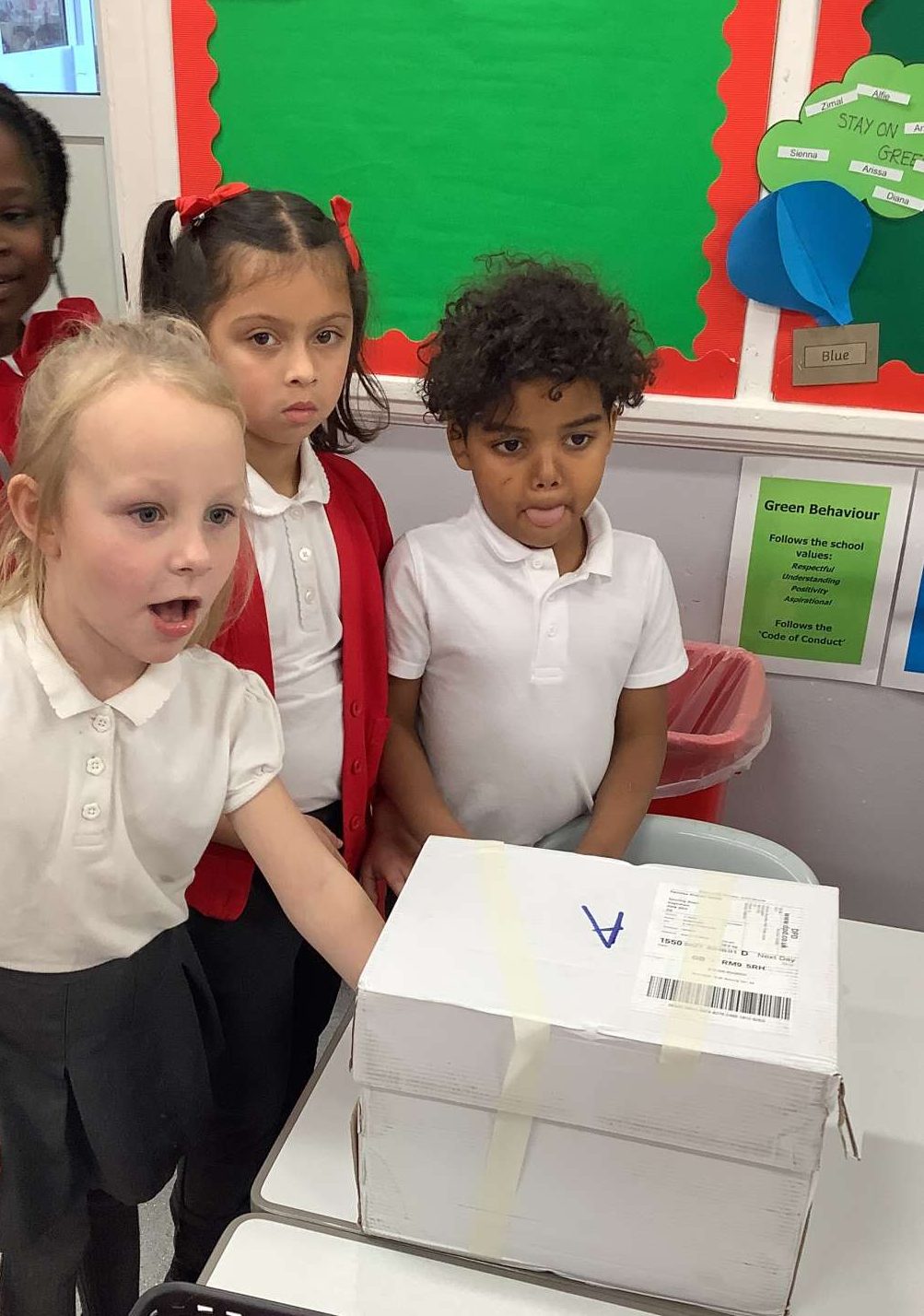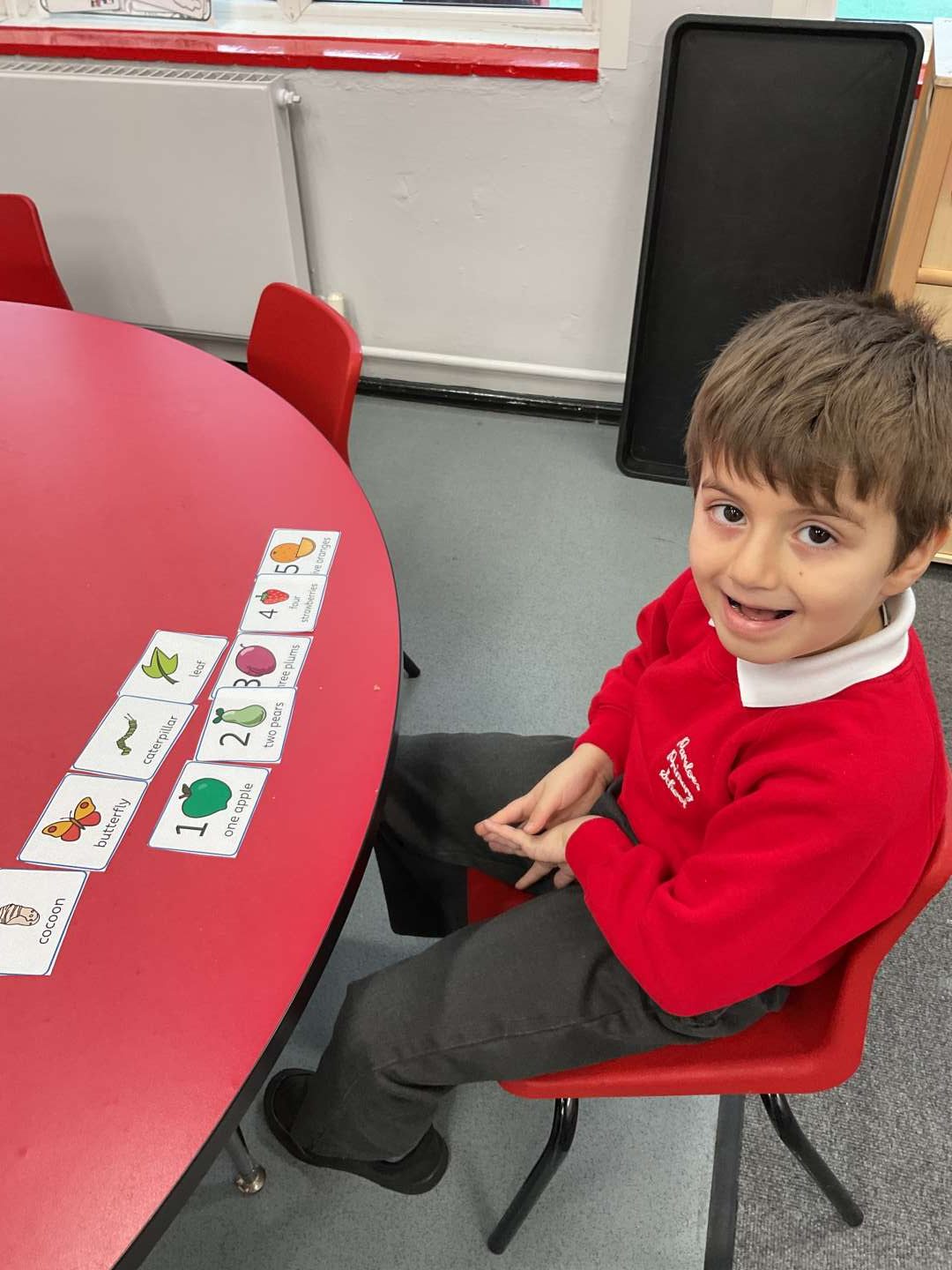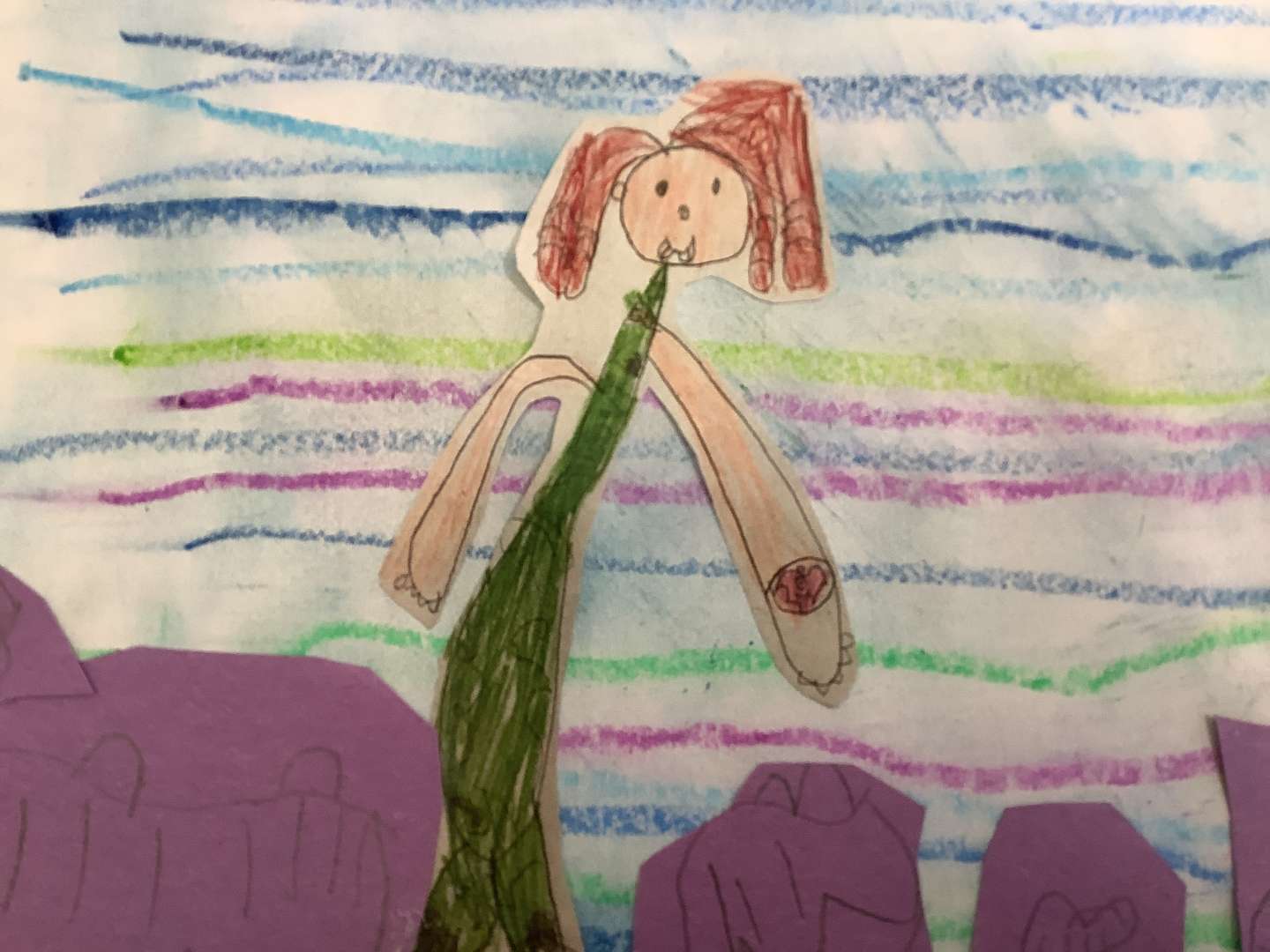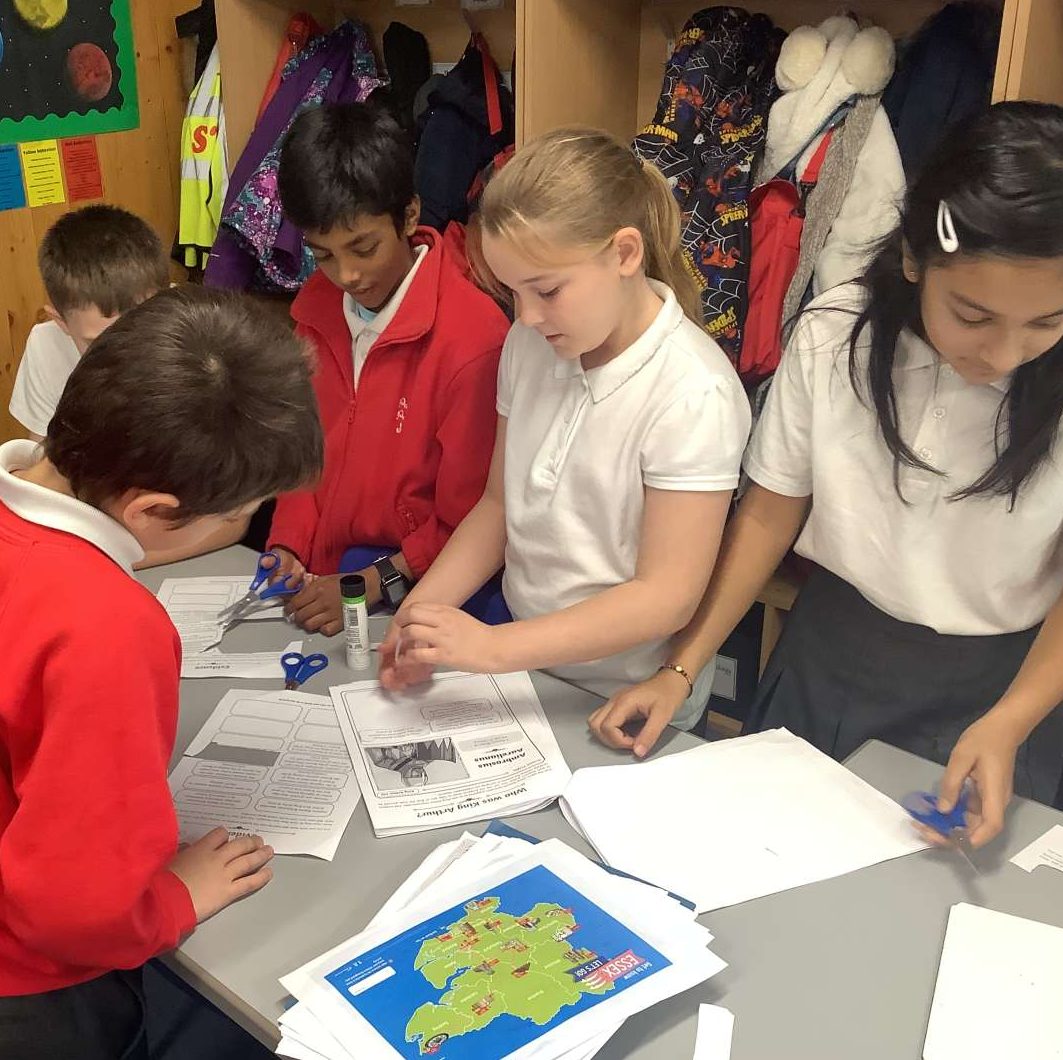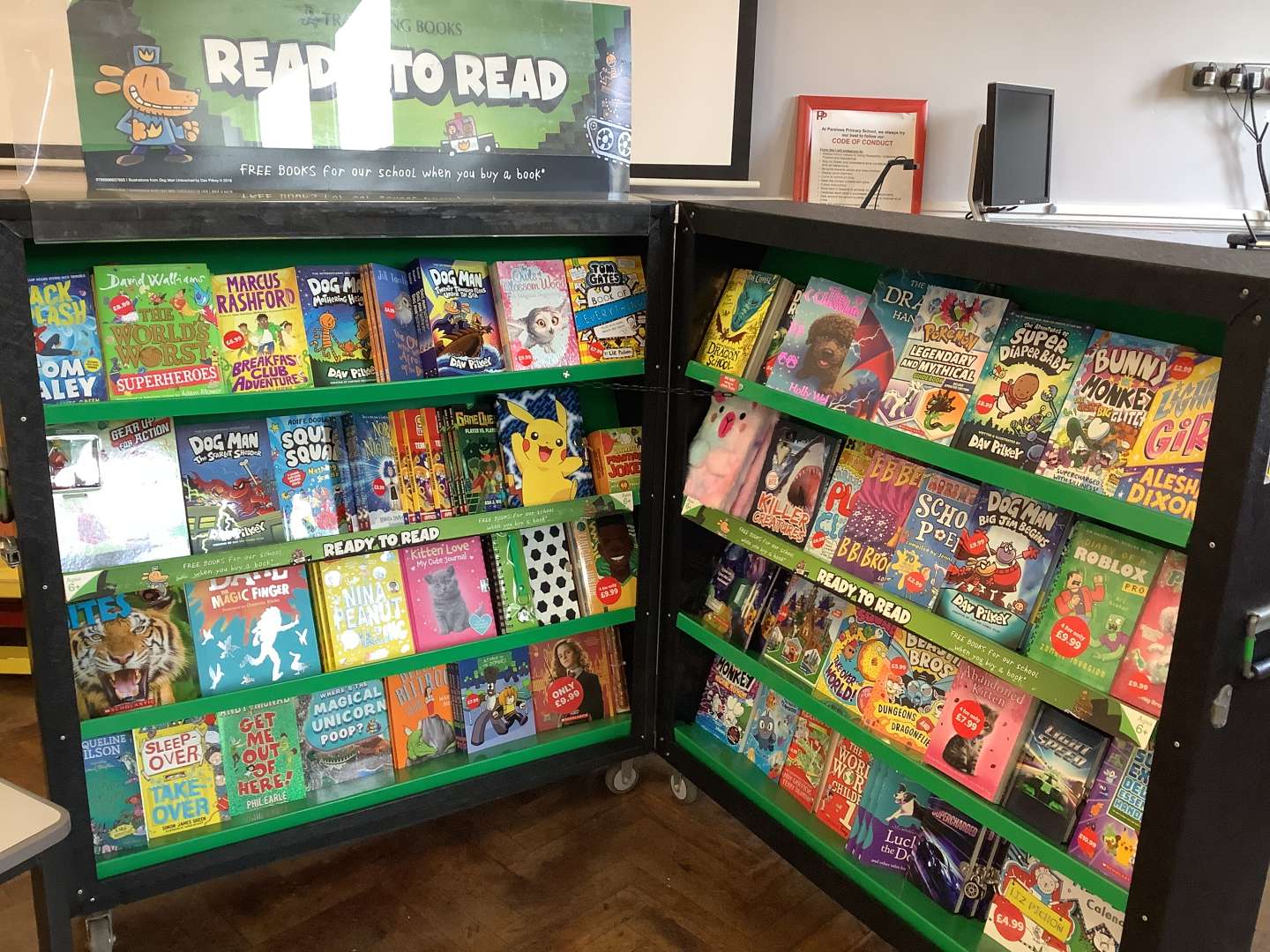English
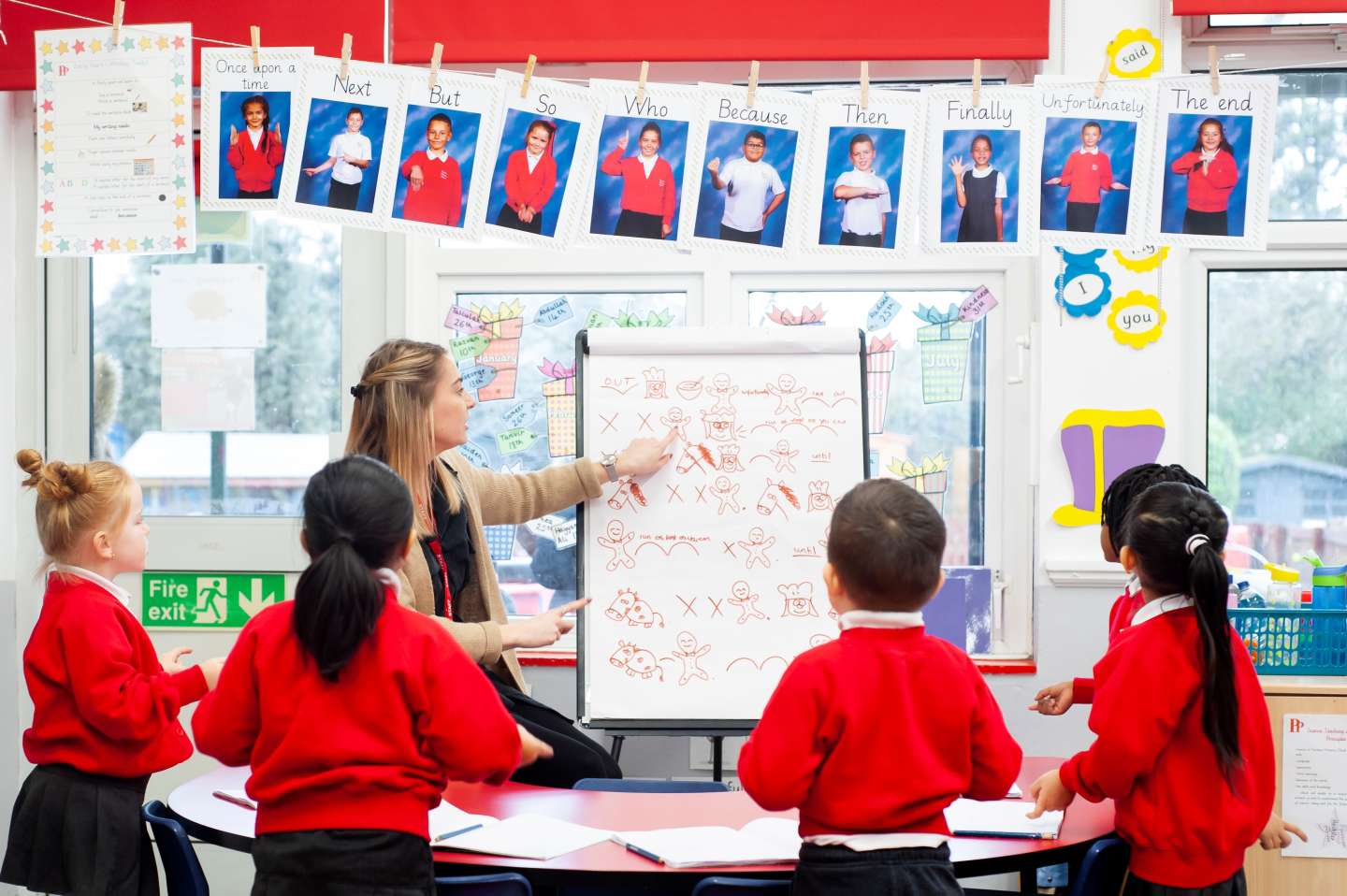
Our English curriculum is designed to immerse children in a range of language-rich texts and therefore develop their speaking, listening, reading and writing skills, with language acquisition at the heart. Our carefully chosen texts reflect the diverse communities we teach and inspire a life-long love of reading.
Intent
Our English curriculum is designed to immerse children in a range of language-rich texts and therefore develop their speaking, listening, reading and writing skills, with language acquisition at the heart. Our carefully chosen texts reflect the diverse communities we teach and inspire a life-long love of reading. Our systematic approach to the teaching of early reading and phonics will ensure that children can read fluently by the age of seven. Please see the phonics and early reading policy for further information.
We follow the national curriculum for English to ensure that all pupils:
- read easily, fluently and with good understanding
- develop the habit of reading widely and often, for both pleasure and information
- acquire a wide vocabulary, an understanding of grammar and knowledge of linguistic conventions for reading, writing and spoken language
- appreciate our rich and varied literary heritage
- write clearly, accurately and coherently, adapting their language and style in and for a range of contexts, purposes and audiences
- use discussion in order to learn; they should be able to elaborate and explain clearly their understanding and ideas
- are competent in the arts of speaking and listening, making formal presentations, demonstrating to others and participating in debate
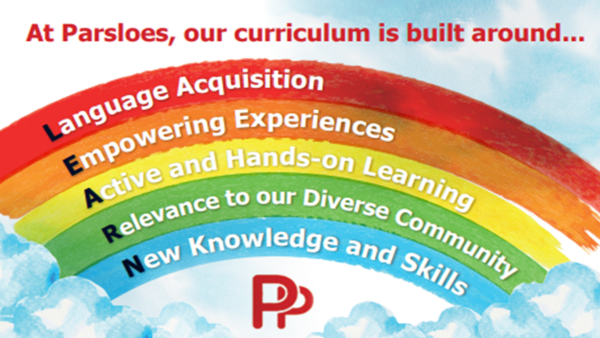 Implementation
Implementation
General
- English is taught through immersion in a range of high quality texts
- The National Curriculum guidance and the TalkForWriting programme developed by Pie Corbett will inform planning for all areas in English.
- A high emphasis is placed on vocabulary development throughout the school.
- Early reading skills are developed through systematic phonics reaching to ensure that all children become fluent readers. We follow Little Wandle Letters and Sounds. Please see the phonics and early reading policy for further information.
- In addition to daily English and reading lessons, cross curricular opportunities for speaking, listening, reading and writing are provided by all class teachers.
- Through baseline assessment and continued formative assessment an early identification should be made of difficulties in any of the areas of literacy and speaking and listening, and specific provision made for these children (see SEND policy).
Speaking and Listening
- Children will be provided with a supportive environment for speaking and listening via a series of planned opportunities to talk and to listen in every year group across a broad and balanced curriculum.
- English lessons follow TalkForWriting, which places an emphasis on high quality oral work. Children’s contributions will be encouraged, expected and extended.
- Adults working in the classroom will offer models for ways of talking and listening. They are high quality models for spoken language, using a broad and rich vocabulary.
- Opportunities for a variety of drama strategies are included within TalkForWriting so that by creating an imagined reality, different roles can be adopted and different demands made on the children’s language.
- Children have planned opportunities to take part in a range of developmentally appropriate activities across the curriculum to include reading and reciting aloud poems, retelling, reporting, instructing, debating, describing, etc.
- Children will develop a sense of audience by waiting for quiet and speaking to be heard. They will develop the skills to tell a story and perform a piece of written work.
Vocabulary Development
- Vocabulary development has a high profile across the school from EYFS to Year 6.
- Children are taught core vocabulary in their English lessons as part of the TalkForWriting approach. In each unit, key words are selected and explicitly taught. These words are carefully chosen so that the children can apply them in many different contexts.
- In EYFS, key vocabulary is identified in planning and then displayed in the classroom to ensure all practitioners are embedding vocabulary in continuous provision. Children have many opportunities to use their newly acquired vocabulary.
- Vocabulary is explicitly taught across the whole curriculum. Key language is identified in planning for each subject area and is progressive across the school.
Reading
- Reading is taught through immersion in high quality texts.
- Classroom reading resources take several forms. Each class has a book corner with a selection of high quality texts at appropriate levels. Dictionaries and thesaurus are provided.
- Every class has the opportunity to visit the school library on a weekly basis. Books from the library can be taken home to read and swapped the following week. To use the school library, a consent form must be signed and parents incur the cost of any lost or damaged books.
- All children take an individual reading book home, which must be read with an adult at least three times a week. Parents are required to sign a reading record book which is checked by the class teacher.
- The Accelerated Reader programme is used in Years 1-6 to further develop comprehension alongside decoding.
- All children take part in regular reading sessions with their teacher, to develop fluency, comprehension and understanding of vocabulary.
- In the earliest stages teachers will demonstrate reading behaviours such as correspondence and directionality, and teach basic concepts e.g. book, page, word, line and letter.
- Higher order skills, such as analysis of setting, character and themes; inference and deduction; and skimming and scanning will be explicitly taught as children progress and a simpler introduction to these areas will be made with even the youngest children.
- Good quality literature will form the basis of all reading activities, including reading aloud by class teachers. A reading spine is in place to ensure that all children hear a range of high quality texts read aloud to them throughout their time in the school.
- A high emphasis is placed on reading for pleasure and reading areas throughout the school are designed to reflect this.
- Developing early reading is essential. We follow Little Wandle Letters and Sounds as our SSP. Please see the early reading and phonics policy for further information.
- Progress in learning to read is carefully tracked and support is in place for those who require additional help.
Writing
- The school uses the TalkForWriting approach developed by Pie Corbett, which follows three key stages. During the imitation stage, children are immersed in a high quality text before innovating it and finally inventing their own example of the genre.
- Teachers use a range of techniques such as model texts, story maps, boxing up and reading as a writer to develop the writing skills of each child.
- Model texts are written for each genre of writing and correspond with the age related expectations for children in each year group. These model texts provide a high level of challenge and are progressive across the school.
- In every unit of work, children study a high quality core text, which is the basis for fiction and / or non-fiction writing.
- Children are given targets to help them progress in their writing skills. The format of these targets varies throughout the school but targets are carefully selected to accelerate progress.
- Grammar is taught throughout TalkForWriting sessions, where children are explicitly taught to use grammar in the context of writing. Spelling is carefully tracked and taught discretely.
- Phonological awareness, phonics and spelling will be taught regularly and systematically throughout early years and KS1. We follow the Little Wandle Letters and Sounds SSP. Spelling strategies are explicitly taught from Year 2 upwards.
- Pupils are taught the whole process of writing, from planning through to writing, editing and publishing.
- Pupils are taught the Nelson style of handwriting. Joined handwriting is taught from Year 2 and expected throughout Key Stage Two. During Year Three, pupils can earn their pen licence.
- English work is marked according to the school marking policy and time is allocated for pupils to respond to feedback.
Talk For Writing
Progression
English Website Links
- Spelling Frame
SpellingFrame


